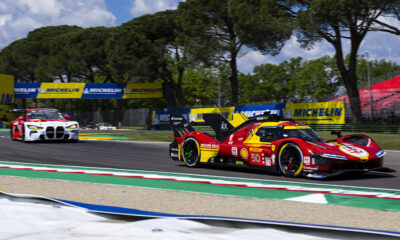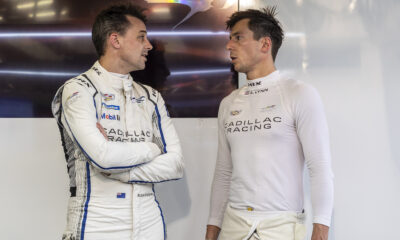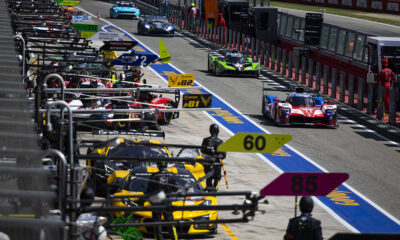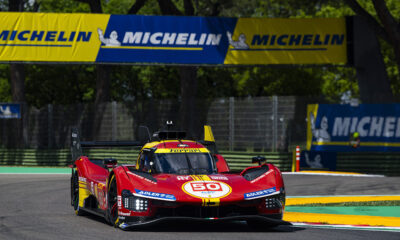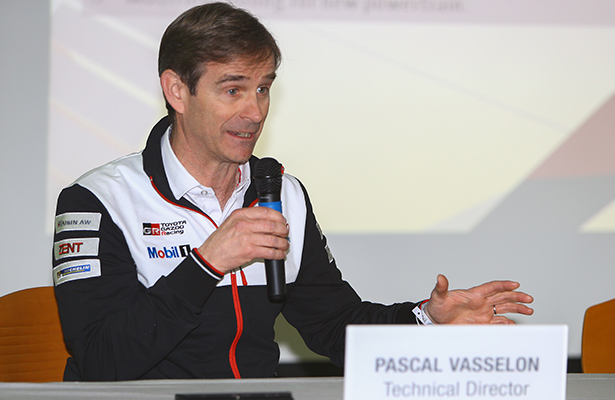
Photo: Vision Sport Agency
Toyota Gazoo Racing’s Pascal Vasselon admitted they had no choice but to develop an all-new internal combustion engine and hybrid system for its TS050 Hybrid after a challenging 2015 season.
The Japanese manufacturer revealed its third-generation LMP1 contender on Thursday at Paul Ricard, featuring a 2.4-liter twin-turbo V6 gasoline engine and 8MJ battery-based hybrid system.
According to Vasselon, the move to a more efficient package will help them make inroads on competition from Audi and Porsche, which will both also utilize turbo engines and battery storage this year.
“It was very clear [we needed a change]. We had no choice because the current regulations gives a big lap time incentive to the higher hybrid class. It’s a no brainer,” Vasselon told Sportscar365.
“From the beginning, we know that we have to be as high as possible on the fuel table.
“The only limitation was the capability to integrate the hybrid system in the car within the weight limit. This was really the challenge.”
Vasselon said the TS050 Hybrid is at the 875kg minimum weight for hybrid-powered LMP1 cars, something that wouldn’t have been achievable with the previous-generation car.
A move away from it normally aspirated V8, which had been used in the TS030 and TS040 cars, also marks a significant, but necessary change, according to the technical director.
“From the engine side, it became clear that in term of big fuel efficiency, a naturally aspirated engine can be actually good. But the range is not,” Vasselon said.
“A turbo basically gives you its optimal fuel efficiency on a much wider RPM range, in a much wider ambient pressure range, and a much wider temperature range.
“Altogether, over the season with the turbo, you operate — in average — higher fuel efficiency. This is something that became very obvious and dictated the switch to a new engine.”
Toyota’s decision to go with the twin-turbo V6 was only made shortly after last year’s 24 Hours of Le Mans, which also impacted the design of other components.
Vasselon said everything except some “standard bolts” are all-new on the TS050 Hybrid, in what’s been a similar leap forward in development from the TS030 to the TS040, which debuted in 2014.
“For the chassis, we started from where the car had to be,” he said. “We simulated the car and the performance level we were targeting.
“This gives us all of the chassis parameters, including the load cases. The car will be faster than last year so the load cases in the suspension is different.
“This is why we needed to design every single bit [new]. We need to follow very precisely what it needed and to the exact requirement.”
Due to the late decision on the engine, the car only ran for the first time in its complete 2016 specification last month after running a 2015/2016 hybrid car in January.
However, with more than 16,000 miles covered in testing at Paul Ricard, Motorland Aragon and Portimao so far, Vasselon doesn’t feel the late start will impact their Le Mans prep work.
“At the moment, even if it’s been very tight, we will approach Le Mans with a normal reliability development process,” he said.
“We’re looking good in terms of build prep for Le Mans. It’s been tight but we’re coming back to the normal schedule.”




















